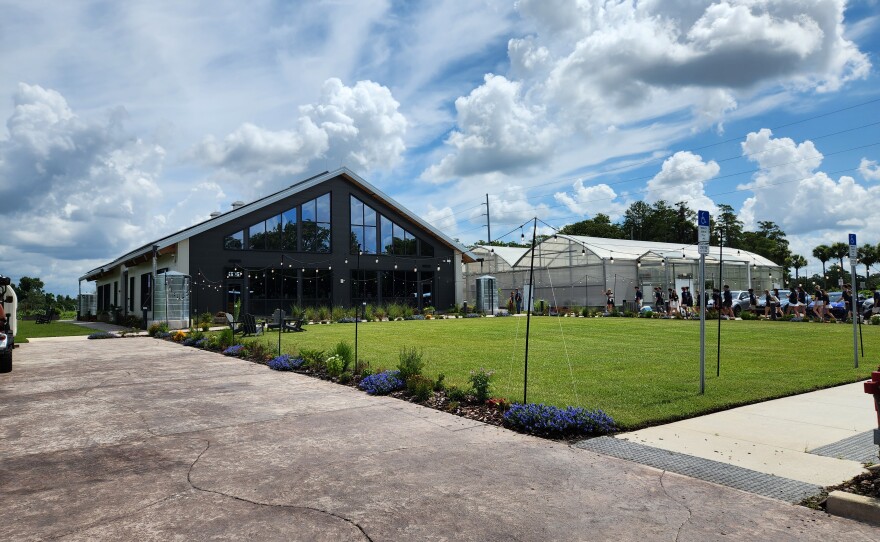Urban farming landscape
The farming landscape isn’t only rural anymore. Urban farming involves growing and distributing food right in the heart of busy cities. It includes a variety of activities from balcony and backyard gardens to community plots or urban beekeeping.
The 4Roots Farm Campus is a 40-acre urban farm two miles away from downtown in the heart of Orlando’s Packing District. There’s open space in the fields, a food forest, box gardens, and a greenhouse. An education building houses lab space with solar panels on the roof and tanks outside collect thousands of gallons of rainwater. The campus is being developed in phases as Brianna Rodarmel, Director of Programs at 4Roots Farm, explains.
“Everything we see here today on the 4Roots Farm Campus is part of phase one which is our education phase,” she says.
Campers learn garden to table process
The campus is where the Orlando Science Center’s summer camp is being held for students grades three through five to learn where their food comes from and how to be more connected to it. Jeff Stanford, Vice President of Marketing with the Orlando Science Center, says before the camp, children might say their food comes from the grocery store or a food delivery service. He says once they see how it grows, they’re more excited and empowered to make healthier choices.
“We do feel that these kids could literally start a transformation at home by coming home with these experiences and sharing them with their families,” he says.
The students get to design 3D-printed planters, build vertical gardens, and make their own mini greenhouse, among other activities. In one room of the education building on campus, campers do hands-on activities making energy bites. They get to squeeze and roll the ingredients together, combining sunflower butter and chia seeds, with shaved carrots for some extra nutrients. It’s a healthy snack to eat there or take home. Rodarmel says teaching the kids about harvesting food and nutrition can help meet other needs.
“We know here in Orange County, one in five students are food insecure, and we don’t know necessarily who those students are,” says Rodarmel.
Experts agree early exposure can spark lifelong change in the food landscape
Experts say exposing kids to urban farming at an early age can influence food and farming in cities in the future. Hannah Eason is an Extension Agent in Orange County for the University of Florida Institute of Food and Agricultural Sciences. She says there is a growing interest in urban farms fueled in part by concerns about food access, conservation efforts, and social media popularity.
“I think the culinary landscape has really helped to drive that interest and the relationship between chefs and farmers. Orlando has finally been getting recognized for being a delicious food city,” Eason says. “There was a slow food movement a bit over a decade ago, and that continued to pave the way for new trailblazers to tap in and learn, and we've continued to see general growth, and certainly social media has assisted the idea.”
Eason says that exposing kids to lessons in urban farming and growing food at young age can cultivate healthier habits down the road.
“Really starting with youth, working with the youth populations to make sure that they understand that food is coming from farms and gardens, and that they can take a part in that too, that relates to health, nutrition, economy, and even just the ability and confidence to be an able bodied and minded human.”




